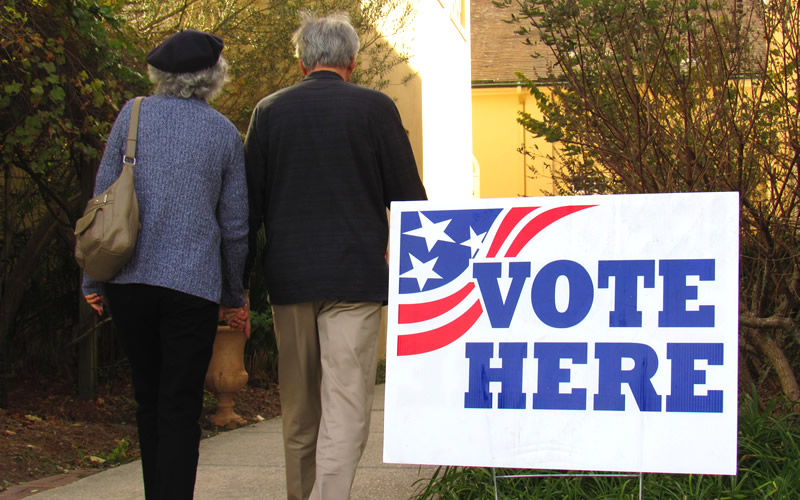
By Lindsay Street, Statehouse correspondent | South Carolina lawmakers say the recent decision to hold no 2020 Republican presidential preference primary was never in their hands, but some say they are still shocked that the party decided to forgo a challenge to President Donald Trump.
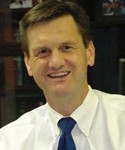
“To be honest, that announcement took me by surprise,” said Beaufort Republican Sen. Tom Davis, a former gubernatorial chief of staff to new GOP presidential challenger and former S.C. Gov. Mark Sanford.
The move to bypass a February 2020 primary leaves Trump unchallenged by his party on the ballot in the Palmetto State, despite three announced contestants, including the state’s own Comeback Kid. In 2013 after having served three terms in Congress and two terms as governor (and an affair), Sanford wore down his shoes in a 2013 special election to fill now-U.S. Sen. Tim Scott’s seat and return to Congress. He lost his reelection bid in 2018 in a primary by Trump-supported candidate Katie Arrington who ultimately lost to businessman Joe Cunningham, a Democrat, in the general election.
Parties trump voters
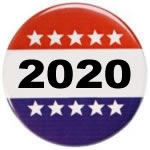 While eight of the 11 lawmakers who spoke on the record for this story supported a 2020 Republican presidential primary, they said they intended to keep presidential preference primaries in the hands of the parties.
While eight of the 11 lawmakers who spoke on the record for this story supported a 2020 Republican presidential primary, they said they intended to keep presidential preference primaries in the hands of the parties.
“It’s not our providence to telling (the parties) how to do things,” House Minority Leader Todd Rutherford, a Democrat from Columbia.
Many Republicans agreed.
“That decision is still best left up to the individual parties,” Goose Creek Republican Sen. Larry Grooms said. “I wouldn’t want to force the Democrats to have a primary if they didn’t want to, and I wouldn’t want the Democrats to force Republicans to have a primary if they didn’t want to. “
Sanford: ‘The timing is interesting’
Sanford officially announced on Sunday that he will mount a longshot bid against Trump. He has said he is serious, and he wants to bring fiscal responsibility back into the Republican discourse.
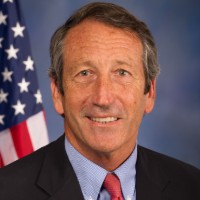
“This just so happens to happen in the state you happen to be from,” Sanford said Wednesday to Statehouse Report. He said he has the ability to mount “a credible campaign” in South Carolina. “The timing is interesting … Let’s be honest: it’s not being done to save money.”
The same weekend Sanford announced his candidacy, the party announced there would be no presidential primary. South Carolina is one of four states so far where Republicans have said they will not hold a vote. S.C. GOP Chairman Drew McKissick released a statement saying the move would save taxpayers $1.2 million, and there was “no legitimate primary challenger.”
Go tell that to the former governor, who said he will likely challenge the decision, citing a state party rule that says the state convention must decide whether to hold a primary, not the executive committee. Nevertheless, the S.C. GOP has not held a primary against an incumbent Republican president in nearly 30 years, as reported by The State newspaper. During the 1992 Republican presidential preference primary, conservative commentator Pat Buchanan and former Ku Klux Klan leader David Duke were on the GOP ballot alongside President George H.W. Bush, who won the S.C. and the national nomination, but lost in the general election to Arkansas Democratic politician Bill Clinton.
According to state elections’ database that goes back to 2008, the Democrats have not challenged a sitting Democratic president either. Barack Obama is listed as “uncontested” in 2012.
But Trump is facing three in-party challengers: Sanford, former Massachusetts Gov. Bill Weld, and former Illinois Congressman Joe Walsh.
Lawmakers and the primary
With a home-state challenger, some are left with a feeling of unfinished business, even with the Palmetto State’s strong support for Trump.
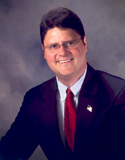
“I would rather see one happen but I understand the party’s decision in this matter because of Mr. Trump’s extremely high approval rating within the Republican Party in South Carolina,” House Majority Leader Gary Simrill of Rock Hill told Statehouse Report. He said Trump’s likely victory in South Carolina is a “forgone conclusion.”
Those are the same two words Townville Rep. Jonathon Hill used to describe a would-be Trump primary victory.
“I can’t say I’m surprised (at there being no primary),” Hill said. “I do think that competition is generally good, helps us to have better candidates in the end and so I would have liked to have seen a debate in South Carolina, particularly in regards to the administration and the challenger’s approaches to deficit. I’m disappointed that didn’t happen.”
Lawmakers have only ever messed with the presidential preference primary once in recent memory. In 2007, the legislature passed Act 81, which gave the state Election Commission and county election offices responsibility over conducting the primaries. Dates are determined by the parties under the current law, according to commission spokesman Chris Whitmire.
While no lawmaker said they wanted to intervene, a majority — including those supportive of the president — said they would like to see a Republican primary in 2020.
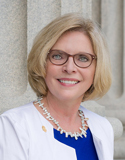
GOP Sen. Katrina Shealy of Lexington said that while the decision is out of her hands, she didn’t think it was a “good idea” to not have the primary.
“It sets the precedent you don’t give people the choice to vote for somebody else if they want to,” she said. “Being somebody who has fought to get on the ballot, I always think people should be given the choice.”
Shealy was one of hundreds of non-incumbent candidates to be purged from primary ballots in 2012. She eventually made it back on the ballot as a petition candidate in the general election, ousting the incumbent Republican. In her 2008 bid for the state Senate seat, she was endorsed by then-Gov. Mark Sanford.
“He’s very conservative, very fiscal conservative,” she said. “But he probably could win other states before he could win South Carolina.”

Grooms, who lost in the 2013 Republican primary to Sanford for the open congressional seat, said the party’s decision is not about Sanford, but rather how strong Trump is.
“(But) I would be supportive of a presidential preference primary. There’s a number of folks in the state that would want to vote in a Republican primary,” he said.
Pickens Repubican Rep. David Hiott said he didn’t have a “personal opinion” about the move, and former Charleston County GOP Chair and current S.C. Rep. Lin Bennett, R-Charleston, said deciding not to hold a presidential primary isn’t the Republican party’s “first rodeo.”
“I’m not quite sure what the concern is that it will hurt us. What it will do is save the taxpayer a whole lot of money,” she said.

Predictably, Democratic lawmakers see the lack of Republican presidential primary as a misstep.
“I fully support Democracy and the ability of people to have choices … They’re just trying to shut down any possible opposition,” said Sen. Brad Hutto of Orangeburg.
Added Rutherford: “It is totally not surprising that the party of Trump takes away the opportunity for people to take away their right to vote, but it is somewhat surprising they took it away from people who may want to vote for him.
- Have a comment? Send to: feedback@statehousereport.com



What is amazing about the scrapping of the GOP presidential primary is its very legacy beginning in 1980. While Democrats had a caucus, the GOP left it to the voters, bringing in independents and independent a Democrat’s into the fold toward eventual dominance. As an early state with retail campaigning, citizens in many communities got to meet and hear nationally based candidates. It put SC on the map. Democrats with their own meagerly attended caucuses by party activists realized the GOP was eating their cake. It wasn’t until 1992 that Democrats started their own presidential primaries. So where does this put the GOP today? Ironically, just like the one-party Democratic system they fought to overcome, more like a machine, autocratic like our president. Nixon in ‘72 had no sweat versus two primary challengers. Neither did Bush in ‘92. If Trump’s such a shoe-in what are they scared of? Appears to be the beginning of a party that has peaked, more concerned about cliquish staying in office rather than responsiveness to the people who made them the majority party.